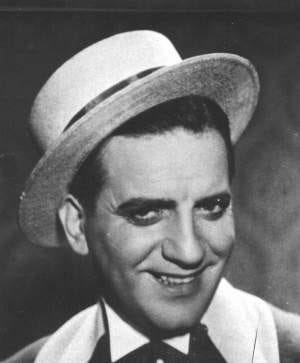Leadership Lessons from My Grandfather
Back in the day grandfather was a pretty big star in the Yiddish theater in New York. He acted, sang, danced, wrote, and conducted an orchestra bearing his name: Hymie Jacobson’s Orchestra.


And he used to tell my father:
“You know what the conductor can do with his baton if the orchestra doesn’t show up.”
This was, in my father’s retelling, accompanied by a hand gesture that left no doubt or ambiguity as to the answer.
Hymie’s point was, the conductor seems to be the most important member of the orchestra.
He’s the one doing all the jumping and waving. It’s his name on the marquee, and the record.
And he’s the one who takes the bow at the end, absorbing the adulation and appreciation.
It’s easy for the conductor to inflate his importance in his own mind.
Hymie was gently reminding us — and, I suspect, himself — not to fall for that illusion.
The conductor exists for the players. He’s there to inspire them, challenge them, grow them, and bring out their best as a team.
Without the orchestra, the conductor is just a schmuck with a stick.
(And according to Hymie, a stick in a very uncomfortable place.)
Leader as Conductor
I think this is a pretty good way of thinking about leadership in general.
While leaders get the spotlight (and the big paychecks), the ones who succeed are the ones who uplift their orchestras — er, teams.
I would go so far as to say — actually, I have already gone so far as to say — that the ability to bring out the best in others is the most important skill a modern leader can develop.
That’s because we live in a scaled world, an exponential world. Competition can come from anywhere, and rarely from the expected quarters. In their book 10x is Easier Than 2x, Dan Sullivan and Dr Benjamin Hardy point out that just doing more, harder, faster, longer is a recipe for mediocrity and eventual burnout.
Leaders Can’t Do It Alone
The star who wants to be starrier can’t just work 36 hours a day instead of 18. Can’t just call 150 prospects a day rather than 75. The only way to have a greater impact is to enlist others to share the work.
And not just the work. The How and Why and What of the work as well. In the hybrid age post-COVID, the When too.
“You who choose to lead,” according to the Grateful Dead’s Robert Hunter, “must follow.” Or at least take a back seat a lot of the time, to honor the autonomy and ambitions and preferences of your players.
And they must share the glory too. Great leaders bask in the applause, sure, but also reflect it onto their band mates.
“Give up for Max Weinberg on the drums!” Springsteen inevitably shouts during each concert.
And he beams in delight as Max soaks in the love.
After all, if you’re giving them a great show, there’s more than enough for everyone.
The UPLIFT Community
There’s a lot more to say about the dynamic of the conductor serving the orchestra so the orchestra can serve the greater mission, but you get what I’m trying to say.
The fundamental shift — the one that precedes all the details and tactics for “servant leadership” — is to acknowledge that you want to be something more useful and ennobled than a schmuck with a stick.
You wouldn’t be reading this far if you hadn’t already made the commitment to servant leadership, to empowering and celebrating your team.
The devil, as they say, is in the details.
Like maintaining your exacting standards when you have to delegate.
Like dealing with a direct report whose behavior is disrupting morale.
Like resisting the urge to efficiently solve everyone else’s problems rather than guiding them to grow their own capability.
A lot of what we’ll be talking about here will be about these types of details. I’d love for this to be a conversation — one in which I conduct and you (and you and you) provide counterpoints, harmonies, unisons, and solos.
In fact, I want this to be more than a conversation. I want this to be a conversation embedded in a community. A community of UPLIFT. Where we come together bravely and transparently to grow our capacity to lift up the people in our lives.
So let’s hear from you: what are the challenges you experience when you “conduct” your team?
Click here if you'd like to have a conversation with Howie or a member of his team about how to bring out the best in the people around you.
*Here’s the music from the record in the photo:
0 comments
Leave a comment
Please log in or register to post a comment